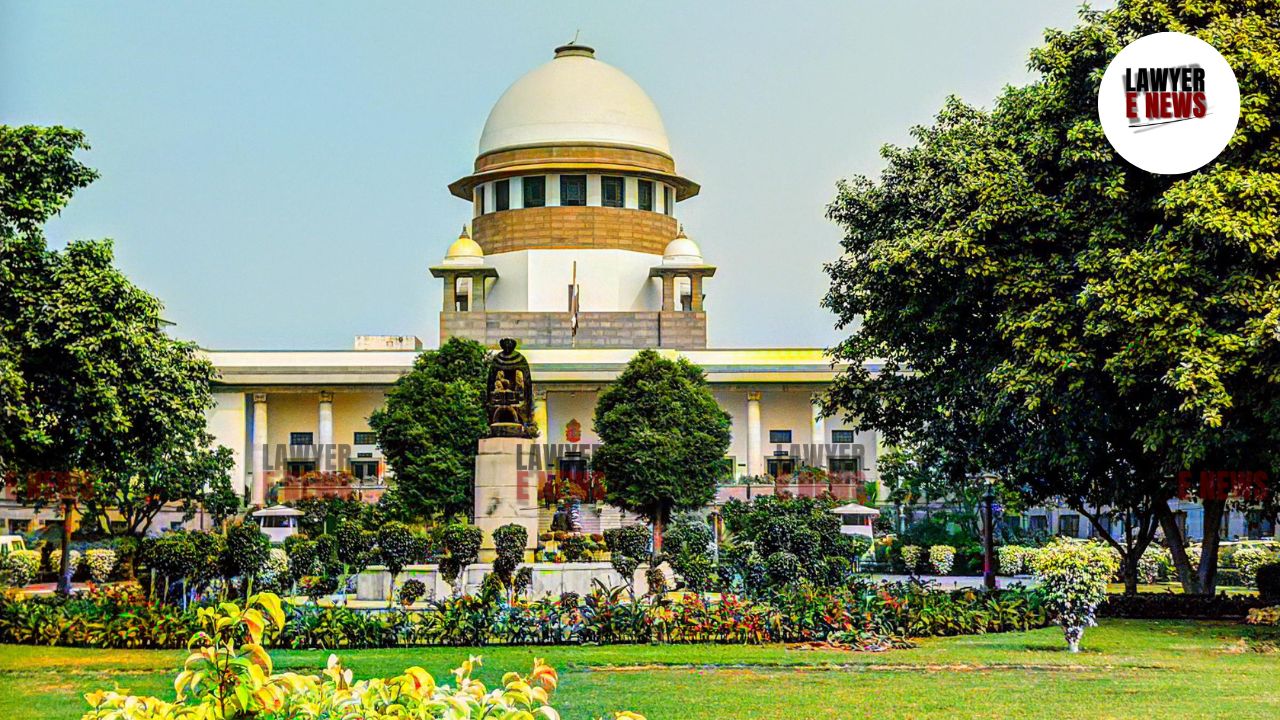-
by Admin
16 February 2026 1:47 PM



Mere Possibility of Injury by Fall Cannot Displace Direct Ocular Testimony of Attack with Deadly Weapons — On April 2, 2025, the Supreme Court upheld the conviction of the appellants under Section 302 read with Section 34 IPC for causing the death of Than Singh and injuries to his grandchildren during a violent attack linked to a land dispute. The Court ruled that “the facts regarding the fight and the overt acts, as disclosed from the evidence, do not commend us to find an offence covered under Part II of Section 304 nor falls under any of the Exceptions to Section 300 IPC.”
The appellants had entered the house of the deceased, armed with a farsa and luhangi (axe and cutting weapon), allegedly annoyed by the deceased’s grandson offering prayers at a disputed temple. The assault resulted in the death of Than Singh and injuries to his three grandchildren. The Trial Court convicted the accused under Sections 302, 323, and 324 read with Section 34 IPC, and the High Court affirmed the findings.
Arguing before the Supreme Court, counsel for the appellants contended that “there was neither premeditation nor intention to cause death,” and the death resulted from a possible accidental fall. However, the Court rejected this argument holding that, “the ocular witnesses, also injured in the same transaction, spoke of a blow on the head of the deceased; their grandfather.” The Court added, “The mere fact that PW2 and 3 did not speak of a reverse hit by an axe in the Section 161 statement cannot lead to their testimony of the overt act being disbelieved.”
The Bench observed, “When a scuffle ensues, it cannot be said that the witnesses; especially if they were actively involved in the scuffle and were also injured, would speak of the minute details of who inflicted the blow, with what weapon and precisely how it was inflicted.”
The Court gave particular emphasis to the evidence that the accused were the aggressors. “The accused came to the house of the deceased with the intention of questioning them regarding the visit made to the deity installed in the disputed property,” said the Court. It further held, “That the accused came to the house armed with deadly weapons also stands established which clearly points to the premeditation and the intention to cause injuries which were likely to cause death.”
The Court held that the fact that the deceased survived for 25 days did not alter the legal position under Section 302 IPC. The Court found that, “The fatal injury caused on the deceased was by a blow to the head; a vital part of the body, with the reverse side of an axe. The intention thus is clear, from the deadly nature of the weapons carried by the accused, who were the aggressors, who trespassed into the house of the victims.”
The Court concluded, “We find no reason to interfere with the conviction and sentence imposed on the accused,” affirming the concurrent findings of the Trial Court and High Court. The Court directed that the accused, if on bail, shall surrender before the Sessions Court within two weeks.
Date of Decision: April 2, 2025
